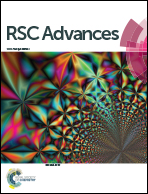Toxicological risks of Rhizoma paridis saponins in rats involved NF-κB and Nrf2 signaling
Abstract
The aim of the study is to evaluate the safety of long-term use of Rhizoma paridis saponins (RPS). After 90 day administration of RPS in rats, it induced liver and lung injury through the over-expression of reactive oxygen species (ROS) and pro-inflammatory cytokines, and by down-regulating the levels of antioxidant and detoxification enzymes. Meanwhile, RPS treatment also activated the self-protective transcription of Nrf2 and elevation of GSH and HO-1 expression to inhibit worsening tissue conditions in the rats. After 30 days' recovery, the abnormalities in liver and lungs disappeared, accompanied by the return of phase II enzyme, pro-inflammatory cytokine, and nuclear factor levels to normal. In conclusion, 350 mg kg−1 d−1 of RPS induced toxicity and detoxicity reactions involving NF-κB and Nrf2 signaling. Our work provides useful data for the correct administration of RPS and minimizing the danger of toxic herbal product use.


 Please wait while we load your content...
Please wait while we load your content...